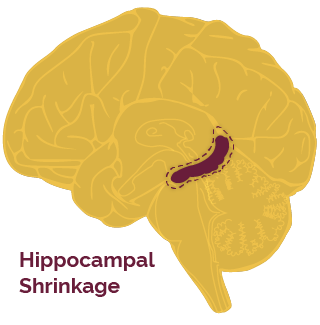Preventing Alzheimer?s Disease Is Easier Than You Think
Science shines new light on root cause of memory problems
Georgia Ede MD
Posted Sep 07, 2016
Science shines new light on root cause of memory problems
Georgia Ede MD
Posted Sep 07, 2016
- Do you have Insulin Resistance?
- If you don?t know, you?re not alone. This is perhaps the single most important question any of us can ask about our physical and mental health?yet most patients, and even many doctors, don?t know how to answer it.
Here in the U.S., insulin resistance has reached epidemic proportions: more than half of us are now insulin resistant. Insulin resistance is a hormonal condition that sets the stage throughout the body for inflammation and overgrowth, disrupts normal cholesterol and fat metabolism, and gradually destroys our ability to process carbohydrates.
Insulin resistance puts us at high risk for many undesirable diseases, including obesity, heart disease, cancer, and type 2 diabetes.
Scarier still, researchers now understand that insulin resistance is a powerful force in the development of Alzheimer?s Disease. - What is insulin resistance?
Insulin is a powerful metabolic hormone that orchestrates how cells access and process vital nutrients, including sugar (glucose).
In the body, one of insulin?s responsibilities is to unlock muscle and fat cells so they can absorb glucose from the bloodstream. When you eat something sweet or starchy that causes your blood sugar to spike, the pancreas releases insulin to usher the excess glucose out of the bloodstream and into cells. If blood sugar and insulin spike too high too often, cells will try to protect themselves from overexposure to insulin?s powerful effects by toning down their response to insulin?they become ?insulin resistant.? In an effort to overcome this resistance, the pancreas releases even more insulin into the blood to try to keep glucose moving into cells. The more insulin levels rise, the more insulin resistant cells become. Over time, this vicious cycle can lead to persistently elevated blood glucose levels, or type 2 diabetes. - Insulin resistance and the brain
In the brain, it?s a different story. The brain is an energy hog that demands a constant supply of glucose. Glucose can freely leave the bloodstream, waltz across the blood-brain barrier, and even enter most brain cells?no insulin required. In fact, the level of glucose in the cerebrospinal fluid surrounding your brain is always about 60% as high as the level of glucose in your bloodstream?even if you have insulin resistance?so, the higher your blood sugar, the higher your brain sugar. - Not so with insulin?the higher your blood insulin levels, the more difficult it can become for insulin to penetrate the brain. This is because the receptors responsible for escorting insulin across the blood-brain barrier can become resistant to insulin, restricting the amount of insulin allowed into the brain. While most brain cells don?t require insulin in order to absorb glucose, they do require insulin in order to process glucose. Cells must have access to adequate insulin or they can?t transform glucose into the vital cellular components and energy they need to thrive.
Despite swimming in a sea of glucose, brain cells in people with insulin resistance literally begin starving to death. - Insulin resistance and memory

Source: Suzi Smith, used with permission
Which brain cells go first? The hippocampus is the brain's memory center. Hippocampal cells require so much energy to do their important work that they often need extra boosts of glucose. While insulin is not required to let a normal amount of glucose into the hippocampus, these special glucose surges do require insulin, making the hippocampus particularly sensitive to insulin deficits. This explains why declining memory is one of the earliest signs of Alzheimer?s, despite the fact that Alzheimer?s Disease eventually destroys the whole brain.